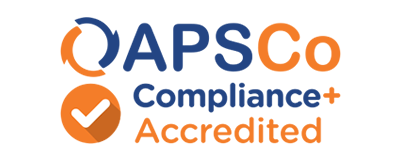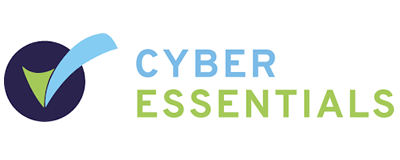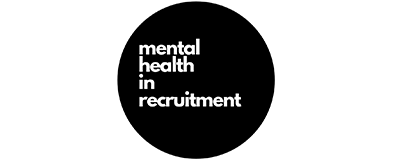Blog
Are you a supply teacher or teaching assistant looking for some help and advice? If so, you are in the right place. Our blogs offer tips and tricks on everything from classroom management to interview tips and support, along with day in the life case studies from real supply teachers, ECTs and cover supervisors. They also give you an insight into what working for Smile is like, the ways which we support local communities and charities and the training and events that we offer.
For more good stuff like this, follow us on social media - you can find us on Facebook, Instagram, Twitter and LinkedIn. Or pick up the phone and give us a call.
Here at Smile, we understand that working in education settings during the COVID 19 pandemic can be a little confusing and a little daunting, especially when working in a new school.
With Government guidance constantly being updated and the rules frequently changing, we decided to host an online Q&A to make sure that we are here to support all our staff during these confusing times.
As a company, we found that, understandably, many of our staff had the same questions and concerns regarding working in schools during a global pandemic. So, we used this as an opportunity to answer all those questions. The Q&A also provided our staff with the opportunity to hear first hand about the ‘new normal’ in schools from Smile supply teacher, Katie Howard.
If you missed our COVID and Schools Q&A or just want a refresher you’ll find all the questions and the answers to them below.
Are Schools still using supply staff?
The simple answer – yes! Schools and Education provisions are still contacting Smile for day to day and long-term positions within schools. In fact, a number of schools are seeking additional staff to help cover gaps in education caused by the school closures, to lead intervention classes and to support them when staff members are having to isolate.
Is it safe for me to work at multiple schools?
In relation to working in schools, it is not possible to ensure a totally risk-free environment, the Office of National Statistics’ analysis on COVID 19 suggests that staff in educational settings tend not to be at any greater risk from the disease than any other occupation. There is no evidence to suggest that children transmit the disease any more than adults. To remain as safe as possible it is important to be familiar with each individual school’s COVID 19 policy (as well as Smile Education’s COVID-19 Code of Conduct), to follow all Government guidance and adhere to social distancing, regular hand washing and wearing a face-covering where appropriate.
What happens if I encounter a pupil/member of staff who has tested positive for COVID 19?
If you are confirmed to have been in contact with a pupil/staff member who has tested positive, you should immediately contact your consultant at Smile. You will then need to follow Government guidance on ‘possible or confirmed Coronavirus infection’ by self-isolating for 14 days.
What should I do if I have symptoms of COVID?
If you begin to show symptoms of COVID then you should immediately contact your consultant. If anyone in the school becomes unwell, with a new persistent cough, high temperature or has a loss of or change in their normal sense of taste/smell then the member of staff must be sent home and follow the guidance of ‘possible of confirmed COVID infection’ this sets out that the individual(s) should self-isolate and arrange to have a test completed as soon as possible, you should not attend a GP Surgery, hospital or pharmacy. If after the isolation period you still have a temperature, you should continue to self-isolate and seek further medical advice.
What if I test positive for COVID 19?
If you receive a positive COVID 19 test result, you must immediately inform your Smile Education consultant. You must then follow the Government guidance for self-isolating. If after the isolation period you continue to feel unwell, then please seek further medical advice and keep your consultant updated.
How are ‘Bubbles’ working in schools?
Schools have set out to put measures in place to safeguarding staff and pupils in the school, whilst still providing a broad curriculum. ‘Bubbles’ are designed to minimise the contact and mixing of students and staff, reducing the transmission of COVID 19. This is important in all contexts and each school has worked to implement this. Reducing the number of contacts between staff and children is key. This has been achieved by setting out clear ‘bubbles’ or small groups, and through maintaining a distance between individuals. These are not alternative options and both measures combined will help, but the balance may vary from school to school depending on the following;
1. Children’s ability to distance
2. The layout of the school or setting
3. The feasibility of keeping distinct groups separate whilst offering a broad curriculum.
The use of bubbles also means, if there is a positive COVID 19 case within school, then only a single bubble will have to follow isolation procedures.
Do I need to wear a mask in school?
There is no ‘yes or no’ answer to the question. The Government are not recommending the universal use of face coverings in all schools. Schools that teach children in Year 7 and above which are not under specific local restriction measures have the discretion to require face coverings for pupils, staff and visitors in areas outside of the classroom where social distancing is not easily maintained.
Primary school pupils, however, are not expected to wear masks. In primary schools, where social distancing is not possible between members of staff and visitors, Head Teachers will have the discretion to decide whether to ask staff to wear or agree to wear face coverings. Facemasks will not be necessary in the classroom, based on current evidence and the measure that schools are already putting in place, such as the system of controls and consistent bubbles. For more information on this see our Facemasks in Schools blog.
How are schools protecting their staff?
By law, schools must adhere to Health and Safety laws, which requires them to assess risks and put protective measures in place. These risk assessments are constantly under review by the senior leadership team, to ensure they are taking all measures to reduce the risk of COVID 19. They do this by using the ‘System of Controls’ which are actions that schools must take, they are divided into 2 categories, ‘Response to any infection’ and ‘Prevention’.
Prevention includes;
-
Minimise contact with individuals who are unwell by ensuring that those who have COVID symptoms, or have someone in their household who does, do not attend school.
-
Where recommend, use of face coverings.
-
Washing hands thoroughly and regularly
-
Ensure respiratory hygiene by promoting ‘Catch it, Bin it, Kill it’
-
Introduce enhanced cleaning
-
Minimise contact between individuals
-
Where necessary, wear PPE
Response to any Infection
-
Engage with the NHS Test and Trace Process
-
Manage confirmed cases of COVID amongst school community
-
Contain any outbreak by following local health protection team advice
What time should I arrive at school due to COVID guidance?
Many of our schools are using staggered arrival times for pupils to reduce cross infections across bubbles. Your consultant will advise you on what the individual school has stated for arrival times, ensuring you still have time to prepare for your day ahead.
Will I still be paid if I have to self-isolate?
This is the decision of the individual school you have been working at, your Smile consultant will speak to the school and confirm with you directly.
What happens if we have another lockdown, will we be paid?
Smile Education will follow all Government advice and guidance should another lockdown happen, we will work as quickly as possible to find information on any Government support packages available and inform our staff accordingly.
As and when the Government guidance is updated or changed, we will endeavour to update our staff as quickly as possible. If anyone has any concerns or questions that we have not covered, then please do not hesitate to contact a member of the team who will be more than happy to assist you. You can also refer to our COVID-19 Code of Conduct.
Add a comment:












